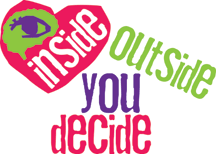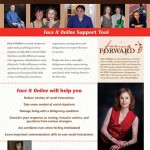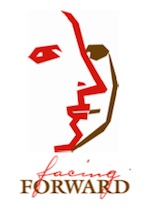This fun and interactive workshop educates middle and high school children about diversity to foster acceptance of people with differences and promotes tolerance. Through a series of exercises and open discussion, we teach children to value others from the inside out, to focus on their similarities, not their physical or cultural differences. Experts agree that children notice differences in each other at an early age, but they won’t have negative associations unless they learn them from adults. Children are the future adults who can change the way our society chooses to view and judge those who are out of the ordinary.
FaceIT Online: A New, Tested and Proven Tool to Help Adults who have Facial or Physical Visible Differences Manage Appearance Related Distress.
Face It Online is a tested and proven eight-week psychological online program to help adults (18 and older) who have a visible difference manage their appearance related distress more effectively. Visible differences include any kind of condition that affects the appearance of any part of the body or face including skin conditions, amputations, scarring, burns and disfigurement no matter the cause or severity. People who have a noticeable disfigurement often report staring, comments and curiosity from others, particularly when meeting them for the first time. – info
Educational Seminars and Workshops
What You Can do When People Stare (For individuals or parents of children with congenital or acquired physical or facial differences)
Frequently, those who look out of the ordinary are the objects of intrusive staring. Research confirms that physical difference impedes communication and complicates social integration and can cause isolation and rejection. This interactive workshop informs participants about why people stare and explores questions such as, “How does it feel to be the object of a stare?”; “What do you do when you encounter someone with a physical difference?” Participants learn and practice communication skills to ease conversation and improve social interactions. Informed, they have new confidence to respond to stares and educate others. Often, participants enter the workshop with a preconceived, “negative” opinion about the motive of staring and leave the workshop with a new, “positive” outlook. They realize that they can break down barriers by being prepared.
What to do When you Encounter Someone with a Physical or Facial Difference
to Facilitate a Pleasant Encounter (For the public)
If you’ve ever felt awkward or uncertain about what to do or say when you encounter someone with a physical or facial difference, this interactive and informative workshop will answer your questions and equip you with skills to make every encounter comfortable. It’s normal to stare at someone who looks unfamiliar. It’s rude and hurtful to glare or gawk, make a patronizing remark, ask inappropriate questions, invade the person’s personal space, or bully someone with a physical or facial difference. In this workshop, we examine our own personal attitudes and behaviors as they relate to appearance. We explore why we stare and ask questions such as, “How do you feel when you encounter someone with a physical difference?” to “What actions do you take when you encounter someone with a facial or physical difference?” We dispel misconceptions about those who have physical differences and educate about the abilities and challenges of living with a physical or facial difference.




